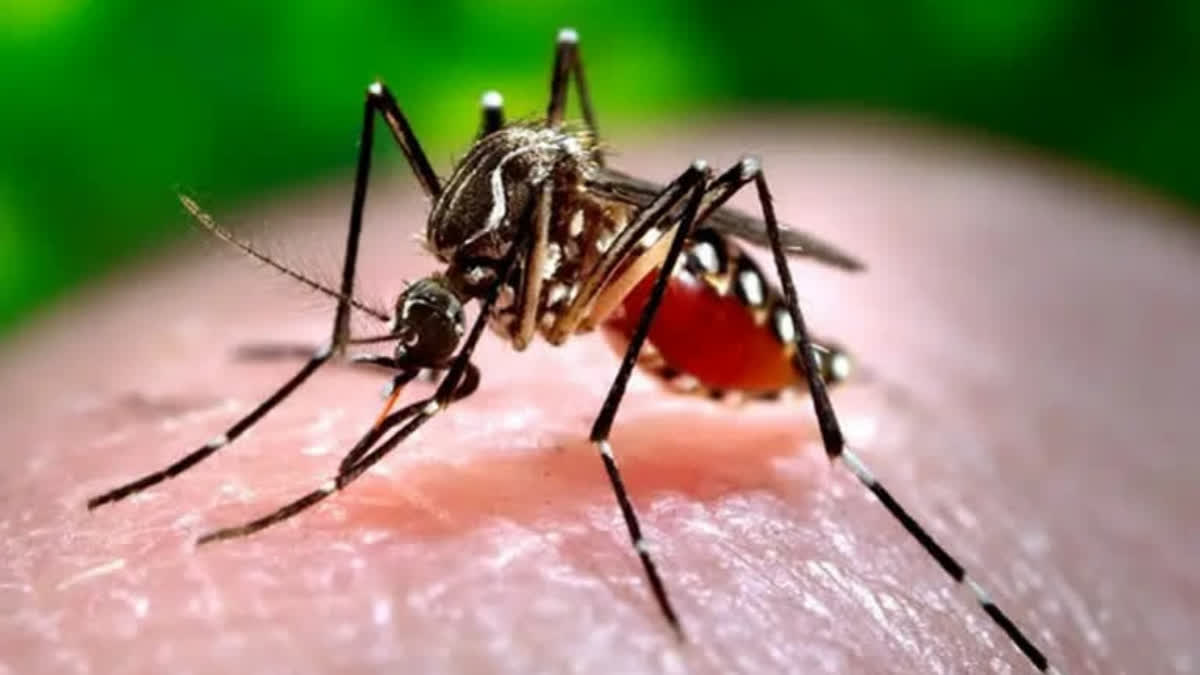New Delhi: As the planet heats up and climate change causes the mosquito-breeding season to extend, the deadly insect will expand its range and emerge in areas where mosquito numbers had previously decreased, says an expert. Mosquito-borne diseases are already endemic in sub-Saharan Africa, Southeast Asia, and Latin America, but they are re-establishing populations in areas such as Europe, warns Avijit Das, R&D Director, Global Pest Control Innovation at Reckitt Benckiser.
"As temperatures rise and environmental conditions change, mosquito-borne diseases will travel to more locations. The time of mosquito breeding in a specific location is predicted to increase, leading to longer mosquito seasons. If mosquito season in India previously lasted for five months, in ten years, it may increase to six months or even seven months," Das told PTI. Das believes that this trend will continue to expand, based on current evidence, and notes that there is a lot of research out there that predicts this.
In a research paper published last year in the journal Exploration in Laboratory Animal Sciences, it was noted that climatic factors, such as an increase in temperature, precipitation levels, sea level elevation, rainfall, wind, and duration of sunlight, are important for both the vector and host. Dr Katie Anders, an epidemiologist and director of impact assessment at the World Mosquito Program (WMP), explains that climate change also increases the risk of mosquito-borne diseases in less obvious ways.
Also read: UK begins first human trial of new Zika vaccine
For instance, when households store water in response to drought, it can increase the number of local mosquito breeding sites and disease risk. Land use changes can also drive migration to cities, increasing the population at risk of explosive outbreaks of dengue and other mosquito-borne diseases, Anders said. According to the Early Warning System for Mosquito Borne Diseases (EYWA), malaria cases have increased by 62 per cent, and dengue, Zika, and chikungunya by 700 per cent in Europe.
EYWA is a prototype system that addresses the critical public health need for prevention and protection against mosquito-borne diseases. Experts from the World Health Organization (WHO) emphasize the urgent need to re-evaluate the tools available and how they can be used across diseases to ensure efficient response, evidence-based practice, equipped and trained personnel, and community engagement.
Das believes that it is necessary to continuously monitor the changing trends in mosquito-borne diseases to ensure an efficient response. "The diseases keep changing and go from one place to another. Now there is evidence that mosquitoes which were not there in Europe earlier are making their presence there. So we constantly keep an eye on what is happening and give ourselves opportunities to make solutions," Das noted.
Das said his lab in Gurugram, which consists of a research team of PHDs, entomologists and other scientists, is continuously tracking what is happening to mosquitoes, diseases caused by them and their evolution. "We have satellite labs at other places. Through all this we keep a tab on what is happening in the mosquito world and which way the menace is growing," he added. (PTI)



